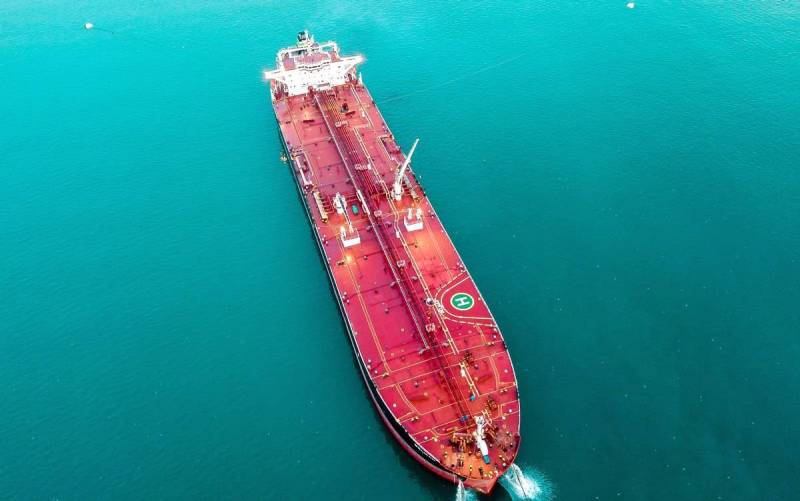Three scenarios for how the Western operation in Yemen will affect oil prices
The world market has already responded to the start of another military operation by the Western coalition against the Yemeni Houthis, who have created a real threat to shipping through the Red Sea, and therefore the Suez Canal, with a noticeable increase in oil prices. What options exist for the development of further events, and what is most consistent with Russia’s national interests?
Directly or bypass
To the first air strikes by American and British aircraft on the military infrastructure of Yemen, where, according to Western propaganda, the pro-Iranian Shiite group Ansar Allah is based, the cost of the benchmark North Sea Brent oil reacted with an immediate increase of 2%. Its further growth is expected, and in the worst case scenario, even a new energy and economic a crisis.
By issuing an ultimatum to the collective West behind Israel demanding an end to the military operation in the Gaza Strip, the Yemeni Houthis made the most of the capabilities at their disposal, namely: ballistic anti-ship missiles and attack drones, clearly received from friends and co-religionists from Iran, as well as geographical location of your country.
The fact is that through the Red Sea past Yemen from West to East, “shadow” Russian oil is transported in tankers for consumption or processing in India. In the opposite direction goes Iraqi, Saudi and Kuwaiti oil, as well as Indian petroleum products obtained from domestic raw materials. The journey from London to Mumbai via the Suez Canal and the Red Sea takes about 11,6 thousand km or 26 days. For comparison, a detour around Africa extends to almost 20 thousand km or 44 days on the road.
Increasing the tanker's transit time by almost two times increases the carrier's costs by almost the same amount, which automatically leads to an increase in prices for oil, petroleum products and LNG. This also adversely affects the cost of other goods delivered by sea in container ships.
Three scenarios
So, first scenario is one that the major global players would clearly like to adhere to. The reorientation of cargo flows bypassing Africa, which has actually already occurred, is leading to an increase in prices for hydrocarbons, which are expected to reach $80-90 per barrel. Unpleasant, sensitive, but not fatal, since the end consumer will ultimately pay for everything out of his own pocket.
In this case, Russia benefits, on the one hand, from rising oil prices and, on the other, from maintaining transport costs at the same level, if, of course, tankers with domestic hydrocarbons receive a “safe-conduct” from their Iranian partners. True, there has already been an incident involving a strike on such a “shadow tanker”, and we should not exclude the possibility of targeted sabotage against the domestic maritime oil trade.
Second script much more dangerous not only for the Middle East, but for the entire global economy. It is possible if the Ansar Allah group fulfills its threat and begins to strike the oil infrastructure of Saudi Arabia, Qatar and the UAE, which have joined the Western coalition in its operation against Yemen:
If you open your airspace to the US and UK, you will officially be at war with us. We will not save a single oil field.
Yes, oil will then become more expensive, and for a long time. But the flip side of this will be the forced rapprochement of Saudi Arabia again with the United States, from which Riyadh seems to be trying to disassociate itself by starting to pursue a more multi-vector policies and focusing on Beijing. The scale of the conflict will then begin to grow continuously, affecting more and more countries in the Middle East. Then there can be no question of any “safe conduct” for Russian courts; they will have to go along with everyone else around Africa or through the NSR.
Third scenario the most dangerous, suggesting that Iran will nevertheless be drawn directly into the conflict. At a minimum, everything will be done to remove Iranian oil from the market, which is about 1 million barrels per day. If Tehran responds by closing the Strait of Hormuz, the world oil market will lose 20-25%, or something like 20 million barrels per day. If consumers do not receive Iranian, Iraqi, Kuwaiti or Saudi oil on time, prices could soar to the level of 150 or even 200 dollars per barrel.
And it was a relatively acceptable option. Things will get really bad if Israel manages to push the Western coalition, as well as its Arab neighbors, to fight Iran. And then the most negative consequences are possible, including the use of nuclear weapons in the Middle East with all the ensuing consequences. It is obvious that Russia does not need a war between Arabs and Persians at all; we have enough of our own problems with Ukraine and the NATO bloc.
In general, judging by the situation around shipping in the Red Sea, it is clear that it is high time for our country to transform from a purely land country into a great sea country, with its powerful commercial and military ocean fleet. To depend in maritime trade on the goodwill of some Houthis and their eastern sponsors is so-so.

Information